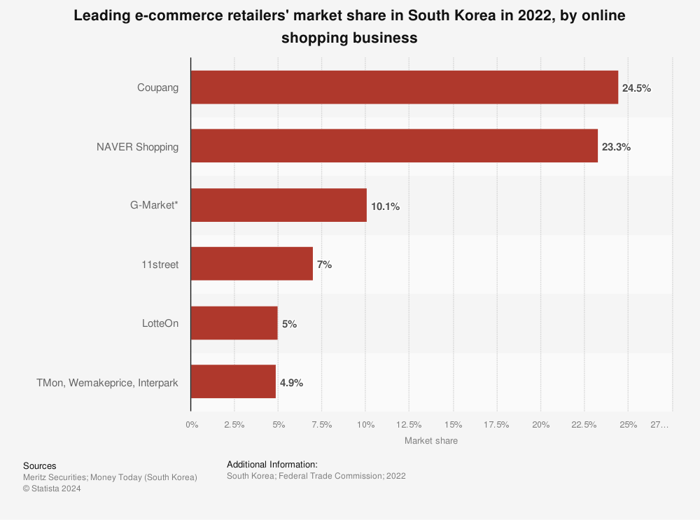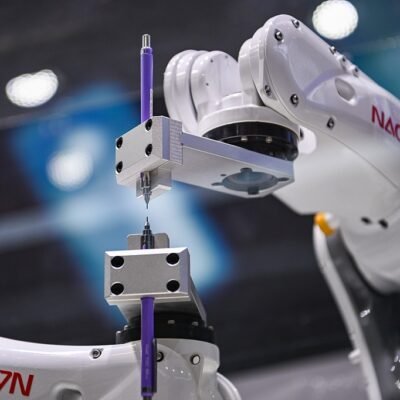Billionaire stock picks are not necessarily the ones that most investors should choose.
One of billionaire Stanley Druckenmiller’s more notable stock positions is a stake in Coupang (CPNG -0.04%). The fund of his Duquesne Family Office initially acquired shares in the company in the first quarter of 2021, adding to the position multiple times within the next three years.
Although Duquesne sold over 455,000 shares in the first quarter of 2024, it still retains nearly 24.5 million shares. That makes up 9% of the portfolio, making Coupang the fund’s third-largest holding. That indicates the recent sale probably doesn’t mean a loss of faith in the stock.
Nonetheless, it may still leave investors wondering whether they should follow Druckenmiller into Coupang. A closer look at the company and its financial situation may lead to some answers.
Understanding Coupang’s business
Coupang is a major e-commerce company in South Korea and is expanding into Taiwan. At first glance, investors may see both the pros and cons of choosing this stock. According to Mordor Intelligence, South Korean e-commerce should grow at a 19% compound annual growth rate (CAGR) through 2029.
Also, South Korea has a population of just over 52 million, and its new market, Taiwan, has around 24 million people. This pales in comparison to the core markets of other e-commerce companies like Sea Limited or MercadoLibre, with addressable markets of approximately 850 million and 650 million, respectively. Furthermore, those companies derive considerable revenue outside of e-commerce.
However, in 2022, Coupang was the largest e-commerce company in South Korea. It claimed nearly 25% of the market, beating out NAVER Shopping at 23% and numerous other companies.

Image source: Statista.
Also, in its densely populated home country, it has invested heavily in logistics, which allows it to handle fulfillment, inventory storage, and shipping for its clients, making it so shoppers can get their products quickly.
Moreover, Coupang’s program Rocket WOW is a subscription service comparable to Amazon‘s. It allows for free shipping, grocery delivery, 30-day returns, and a streaming service, among other things. Subscription numbers grew 27% to over 14 million in 2023.
The company’s financials
Additionally, Coupang is growing faster than the e-commerce company’s CAGR might suggest. In the first quarter of 2024, revenue grew 23% year over year to $7.1 billion, faster than the 18% pace a year ago.
Nonetheless, costs and expenses slightly outpaced the revenue, rising 24% in the first quarter. This led to a net income attributable to stockholders of just $5 million, down from $91 million in the year-ago quarter.
Admittedly, this struggle did not prevent Coupang shares from rising by over 40% year to date. But unfortunately for Druckenmiller, the stock has lost more than half of its value since going public in March 2021.
CPNG Total Return Level data by YCharts
Worse for Druckenmiller, the fund bought 17.8 million of its 24.5 million shares in 2021. That makes it unclear whether the Duquesne fund believes in Coupang’s long-term future or is merely trying to recoup some of its losses.
However, Coupang looks attractive from a price-to-sales (P/S) ratio standpoint. The sales multiple fell to just above 1 in January, and even with a recent run-up stands at just 1.6. This is much lower than the P/S ratio of 5.8 for MercadoLibre and 3.1 for Sea Limited, a company that competes with Coupang in Taiwan. That lower valuation may compel investors to overlook the much smaller addressable market.
Should investors buy Coupang stock?
Ultimately, investors could do well to follow Druckenmiller’s fund into Coupang stock. Admittedly, its much smaller addressable market and comparative lack of diversification may be a concern for the internet and direct marketing retail stock. Given its smaller market expanse, it may ultimately experience less growth than its competitor in Taiwan, Sea Limited, which serves more countries and is less dependent on e-commerce.
Still, when compared to the CAGR for South Korean e-commerce, it appears to be outperforming the market and has likely built a logistical advantage. With its lower P/S ratio, investors are well-positioned to buy Coupang’s growth at a substantial discount.
John Mackey, former CEO of Whole Foods Market, an Amazon subsidiary, is a member of The Motley Fool’s board of directors. Will Healy has positions in MercadoLibre and Sea Limited. The Motley Fool has positions in and recommends Amazon, Coupang, MercadoLibre, and Sea Limited. The Motley Fool has a disclosure policy.





